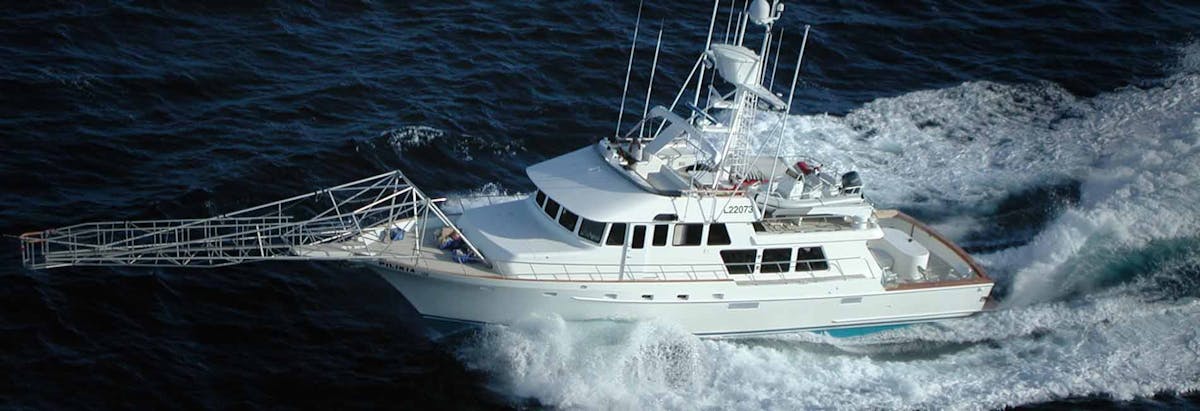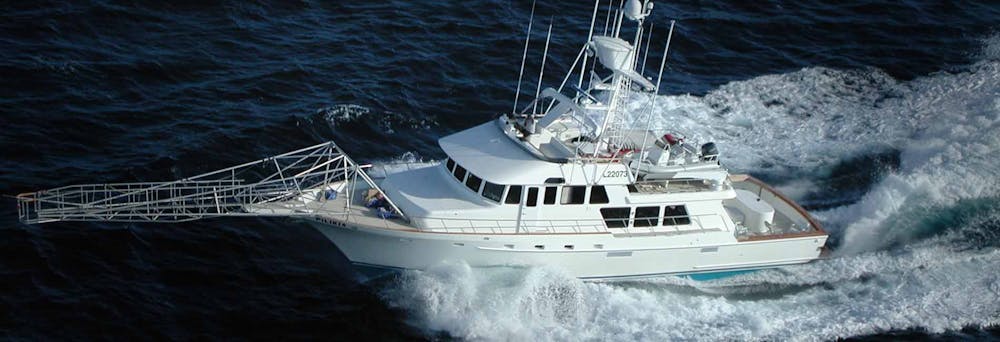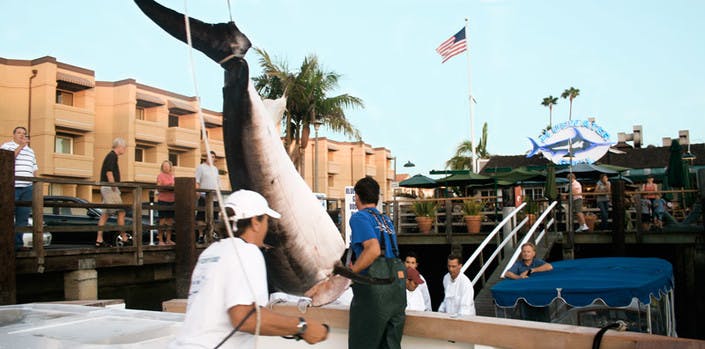Celebrating Earth Day as Marine Stewardship Leader

April 12, 2019

Bluewater Grill Celebrates Earth Day as Marine Stewardship Leader
NEWPORT BEACH, Calif. – The Bluewater Grill family of seafood restaurants has been a leader in sustainable seafood practices since the first restaurant was founded in Newport Beach in 1996. Since then, both the company’s footprint and commitment to marine stewardship have expanded exponentially.
This year, Bluewater Grill celebrates Earth Day as one of the West’s most influential forces in seafood sustainability. While the company continues to expand, recently adding it’s seventh and eighth restaurants in Carlsbad Village and on the Santa Barbara beachfront, its ultimate goal remains to serve only the freshest fish that is certified sustainable, either by the prestigious Monterey Bay Aquarium’s Seafood Watch program or similar organizations.
Bluewater Grill was one of the first West Coast seafood restaurants to apply a full-disclosure menu philosophy and publish a Fish Origins Chart showing the specific farmed or wild source of every item on the menu. Bluewater co-founder and co-owner Jimmy Ulcickas has helped shape nationwide sustainability policy, speaking at Seafood Expo North America in Boston, the world’s largest seafood show, and profiled on the cover of SeaFood Business, the nation’s leading trade publication for seafood restaurants and other buyers.
“As a company founded by fishermen and those who are passionate about the sea, Bluewater Grill is dedicated to maintaining the rich traditions of our fishing forefathers and to ensuring the ocean for the next generation,” said Ulcickas. “We owe all of our success – and our ability to cultivate new seafood lovers – to a healthy ocean teeming with seafood and shellfish.”
“Bluewater has been honored to lead the seafood restaurant industry to adopt the most responsible fishing and harvesting practices that will ensure this future for all of us.”
Bluewater is also one of the few seafood restaurants in the country to operate its own harpoon seafood boat, Pilikia, to ensure it can humanely provide sustainably caught, pristine-quality swordfish directly to consumers in-season. Pilikia Captain Sean Burke targets only mature fish without the use of nets or long lines, harpooning the freshest most humanely harvested local swordfish in Southern California waters.
When harpooning isn’t possible Bluewater uses deep-set buoy gear. Both methods minimize the wasteful killing of other Pacific marine life.

Currently, seafood and shellfish purchased by Bluewater is selected to fit criteria of sustainability, environmental impact and ethical/best aquaculture practices (BAP) and harvest guidelines. The restaurant is leading the industry use of fisheries and farming operations that meet standards established by Seafood Watch and other organizations, and working closely with its vendors to meet 100% of its objectives.
“Our goal is to source only fish from sustainable fisheries, predominately from those recognized by science-based certification and advisory programs at the Monterey Bay Aquarium, Marine Stewardship Council, Aquarium of the Pacific and Sustainable Fisheries Foundation. We also choose seafood and shellfish species that we are confident are sustainable in the ocean area from which they are harvested.”
Ulcickas insists that as a leader in the seafood sustainability movement, Bluewater has an obligation to educating its customers and the general public about the benefits of responsible fishing practices – and the simple fact that sustainable seafood and shellfish almost always leads to a fresher, tastier and more complete dining experience.
In addition to making the Fish Origins Chart available to guests upon request, Bluewater routinely prints the wild or farmed source of many of the up to 40 varieties of fresh seafood and shellfish it serves in season annually. It has included sustainable seafood feasts among its popular Second Tuesday Tasting series during which chefs from each restaurant present a seasonal seafood or shellfish paired with a hand-selected wine, beer, sake or other drink.
Bluewater also ensures that its seasonal specials, featuring the most popular seafood and shellfish in season including the current Redfish and Gumbo, comply with BAP practices.
“More than anything, we want our customers to consider the source of everything they eat and remember that seafood and shellfish supplies must be protected if they are going to meet the demands of a growing population – especially in the face of a new, global appreciation for fresh fish,” said Ulcickas. “While our goal is to cultivate new seafood fans for our growing family of restaurants, we simultaneously need to ensure the fresh fish to keep them satisfied and coming back.”
“It’s a never-ending cycle – and it’s only possible if we all practice sustainability. Those of us at Bluewater are proud to be leading the fight.”
